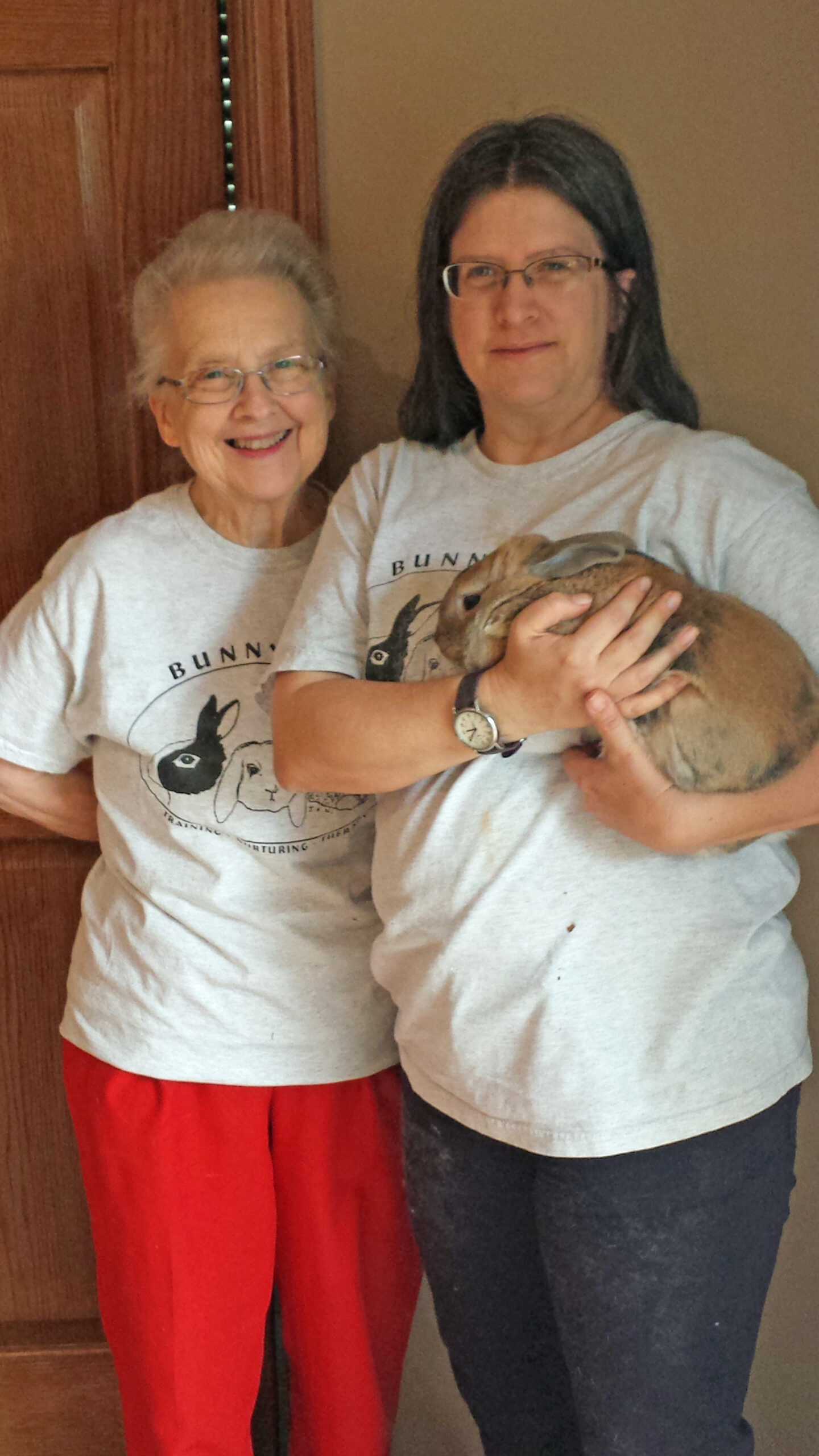Being cute and fluffy makes rabbits a natural as therapy animals, Joyce Gedraitis says. Unfortunately, those same traits don’t stop some people from tiring of them — or their rather prodigious offspring — as pets.
Gedraitis, founder of a nonprofit called Bunny TNT (for training, nurturing and therapy), has been trying since 2006 to save unwanted bunnies and use them to comfort people in nursing homes and other settings.
Actually, the group started out as a way for Gedraitis to meet other rabbit owners after getting her daughter one.
“Almost immediately, people wanted to bring rabbits to us,” she said. “We ended up a rescue (organization) because the need is so great in our community.”
According to Gedraitis, the Kansas Humane Society doesn’t have the capacity to rescue rabbits. She knows of no other rabbit rescue groups closer than Kansas City and says she has taken in rabbits from across Kansas and northern Oklahoma.
Bunny TNT has about 20 active members. During the 12 months ending in July, they took in 37 rabbits and — after insuring they were heathy, vaccinated and spayed and neutered — were able to adopt out 29 of them.
“They are all house rabbits,” Gedraitis said. “We don’t adopt out for anything else.”
For years, Gedraitis said, Bunny TNT was able to raise a little money for the organization by taking rabbits to nursing homes, special needs facilities and other places that would pay them.
“We’ll put bunnies in front of them to pet, then we just talk about bunnies,” she said. “We’ve also taken some in strollers to people who can’t get out to a table. They’ll reach in the stroller. We’ve had people talk to the bunnies that haven’t talked to people in years.”
But Gedraitis said there’s been less demand for the rabbits since the pandemic. She reached out to The Active Age in the hope that friends or relatives of people who might benefit from bunny therapy would be willing to pay for the service.
“We are scraping to get money to keep in existence,” she said. “We are still getting some calls.”
Bunny TNT became a 501c3 organization in 2019.
Gedraitis, who recently turned 80, has turned over leadership of Bunny TNT to her daughter, Joan, but still remains a big fan of the creatures, who were domesticated at least as far back as ancient Rome.
She says a well-cared-for rabbit often lives eight to 10 years. “The little ones live longer.”
They range in size from about two to 10 pounds.
Gedraitis said they are trained by “learning what they like and then encouraging them to do it” — for instance, by placing favorite foods in their cages when it’s time to turn in.
While there are pure breeds, most rabbits taken in by Bunny TNT are mixed.
“People will buy a boy rabbit for a boy and girl rabbit for a girl, and never even think what will happen if they don’t get them fixed.”
What happens — with some of them, at least — is they end up at Bunny TNT.
“Oh my gosh, yes, our house is a bit overcrowded with rabbits,” Gedraitis said. “They seem to find their way here.”








